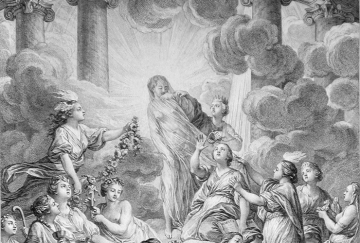Brandon Bloch in the Boston Review:
 “No one in the world feels the weakness of general characterizing more than I.” So lamented Johann Gottfried von Herder, towering figure of the German Enlightenment, in his 1774 treatise This Too a Philosophy of History for the Formation of Humanity. “One draws together peoples and periods of time that follow one another in an eternal succession like waves of the sea,” Herder wrote. “Whom has one painted? Whom has the depicting word captured?” For Herder, the Enlightenment dream of grasping human history as a seamless whole came up against the irreducible particularity of individuals and cultures.
“No one in the world feels the weakness of general characterizing more than I.” So lamented Johann Gottfried von Herder, towering figure of the German Enlightenment, in his 1774 treatise This Too a Philosophy of History for the Formation of Humanity. “One draws together peoples and periods of time that follow one another in an eternal succession like waves of the sea,” Herder wrote. “Whom has one painted? Whom has the depicting word captured?” For Herder, the Enlightenment dream of grasping human history as a seamless whole came up against the irreducible particularity of individuals and cultures.
The German philosopher and social theorist Jürgen Habermas, among the most influential thinkers of our time, grapples with much the same problem in his new work, the title of which reverses the order of Herder’s terms: This Too a History of Philosophy. Published in German last September, Habermas’s History spans over 3,000 years and 1,700 pages. It marks the apogee of a singular career. Like his eighteenth-century precursor, Habermas seeks a thoroughgoing reconceptualization of the sweep of human history. “Philosophical problems,” he writes, are distinctive from merely “scientific” ones in their “synthetic force.” For Habermas, the fragmentation of modern life has hardly exhausted philosophy’s capacity for bold questions and architectonic structure.
More here.
